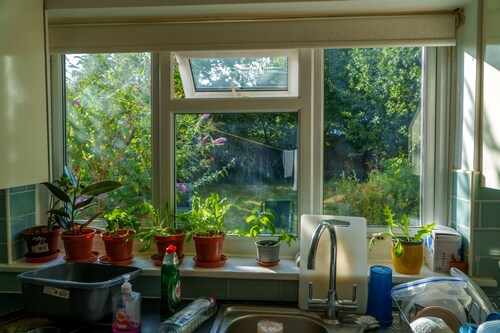Settling into your own place—whether it’s a dorm room, apartment, or first house—is a rite of passage. For many college students and recent grads, it’s also the first time they’re solely responsible for the care and upkeep of their living space. Sure, there’s an obvious learning curve when it comes to laundry schedules and keeping the fridge stocked, but what often catches people off guard is how much a property’s location affects its maintenance demands.
From door hinges that mysteriously start groaning in January to basements that flood during spring storms, your zip code has a lot more influence on your home life than you might think.
Climate and Comfort: The Hidden Impact of Where You Live
Each region presents its own set of environmental challenges that shape how we care for the places we live. In Texas, for example, residents are used to long, humid summers that can warp wooden frames, damage window seals, and overwork air conditioning systems. Compare that to more northern or mountainous areas, where the repeated cycle of freezing and thawing can cause cracks in concrete, weaken roof shingles, and jam up anything mechanical—especially if it’s sitting in a garage exposed to the elements.
These aren’t just regional quirks—they’re factors that drive everything from the materials builders use to the pace at which repairs are needed. Students moving away from home for school or work may not realize the extent of these shifts until they’re dealing with a surprise leak, drafty window, or failing motor.
The Subtle Science of Sound: When Your Home Speaks Up
Some home issues announce themselves loudly. A broken pipe or sudden blackout doesn’t leave much room for interpretation. But many problems creep in with subtle signs—noises you’ve never heard before that signal something is off. Think of them as your home’s early warning system.
One common example is garage doors. Most people barely notice them day to day, but when they start clicking, grinding, or hesitating mid-cycle, it’s usually the result of temperature shifts affecting the alignment, tracks, or motor performance. That becomes even more pronounced in areas with cold winters or wide daily temperature swings.
While students living in dorms may not need to worry about that, those renting houses with garages or planning to buy property after graduation absolutely will. And in places like northern Colorado—where snow and sunshine can tag-team your home in a single week—it’s not uncommon to eventually need specialized help with garage door repair ft collins as systems begin to wear down more quickly than expected.
From Student Rentals to Suburban Starters: What to Watch For
During college, many students pass through a series of short-term rentals: off-campus apartments, shared houses, or sublets. These properties often have years of wear layered onto them, and landlords don’t always keep up with repairs unless something breaks entirely. That means tenants need to know what to watch for—not just to stay comfortable, but to avoid safety issues and unnecessary costs.
For example:
- Drafts from poorly sealed windows can spike your utility bill
- Older HVAC systems may fail during heat waves or cold snaps
- Faulty water heaters can leak or cause inconsistent temperatures
- Garage doors or gates with damaged tracks can become safety hazards
Many students don’t think about these details during a walkthrough, but learning to spot potential maintenance concerns can save headaches (and security deposits) down the line. It’s even more important when transitioning to your first home purchase, where those responsibilities shift entirely to you.
Localized Living: Why Location Shapes Maintenance Strategy
The demands of home care aren’t universal—they shift dramatically depending on your geography. Humid air promotes mold growth, while dry climates crack paint and dehydrate insulation. Coastal towns have to contend with salt corrosion, while high-elevation cities like Fort Collins face snow buildup, hail, and strong UV exposure at altitude.
Garage doors again offer a great case study. A well-functioning garage system in Phoenix may run year-round with minimal issues, while that same system might freeze up, contract, or misalign during the colder months in Colorado or the Midwest. That’s because components like springs, chains, and rubber seals respond directly to moisture, cold, and thermal expansion. Multiply that stress across seasons, and even newer systems can start to show signs of wear after just a few years in the wrong climate.
In towns with unpredictable weather patterns, localized experience matters. Having systems evaluated periodically—especially before winter—can prevent breakdowns that might leave your vehicle stuck or your garage exposed to the elements.
Building Smart Habits Now: Maintenance You Shouldn’t Skip
Whether you’re a student in a rental or a new homeowner settling into your first mortgage, a few basic home maintenance habits go a long way. Developing routines now makes it easier to catch small issues before they snowball into expensive problems.
Here’s a seasonal checklist to consider:
Monthly
- Test smoke and CO2 detectors
- Check air filters and replace as needed
- Listen for new sounds—rattles, squeaks, or grinding from major systems
Quarterly
- Examine caulking around windows and bathrooms
- Inspect doors and locks (especially if you live in a humid or high-dust area)
- Check your garage door operation—look for any jerking or delayed responses
Seasonally
- Clean gutters and downspouts
- Inspect weatherstripping and insulation
- Lubricate moving mechanical parts, especially for items exposed to the elements
Small investments of time can protect you from costly emergencies. There are also a number of apps and platforms that can help track maintenance tasks, offer checklists, and even send you reminders based on your region’s climate and home type.
Lessons in Independence Beyond the Classroom
Learning to maintain a home—whether rented or owned—is an underrated but essential life skill. For many students, it’s the first time they’ve had to juggle school, work, and home care all at once. But those early experiences can instill habits that last a lifetime. They teach you not just how to troubleshoot small issues, but how to think proactively, budget for repairs, and value your space.
Understanding how the environment around you affects your home helps you take ownership in a different way. Whether you’re attending school in a sweltering city or navigating the freeze-thaw rhythm of a mountain town, knowing what your space needs—and when—is an investment in your safety, comfort, and peace of mind.




